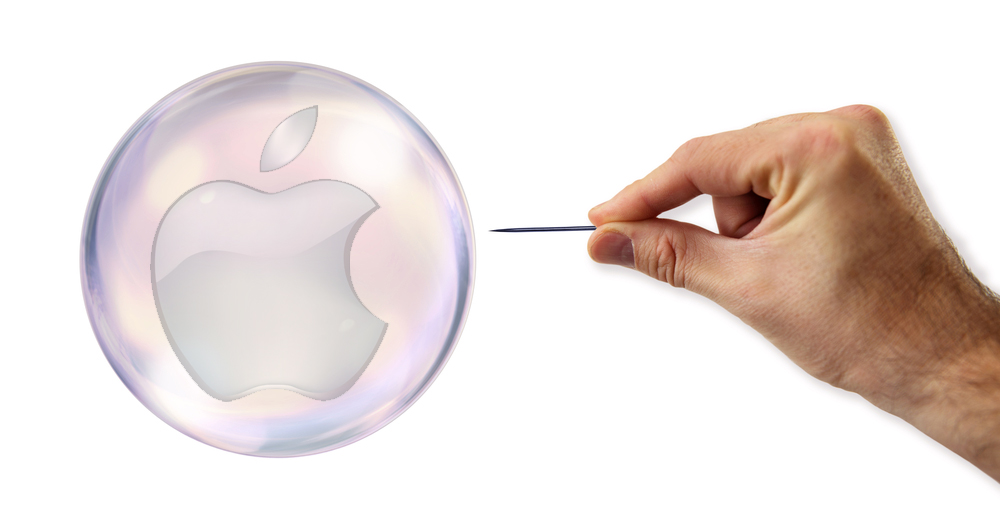Has the bubble burst for Apple?

After months of rumors, leaks and even more rumors, the iPhone 6 is set to be unveiled by Apple in California today. As is the norm with Apple launches, the announcement has garnered a lot of excitement, with people going so far as to queue up outside Apple stores weeks in advance of the actual release.
However, despite these crazy levels of attention and raging anticipation, Apple is still having some rather serious questions asked of it. This one in particular: does the Apple brand still have the X-factor it once boasted?
Going back to when Steve Jobs announced the first iPhone all those years ago, there was no doubt that Apple was the undisputed the king of mobile. The iPhones looked and performed better than all others on the market so, naturally, everybody wanted one.
The company became well-known for both starting and leading trends -- defining the market, rather than reacting to it -- meaning its main competitors struggled to keep up as the Cupertino-based company went from strength to strength.
Now, however, it seems that other companies have caught up and, in some cases, might have even overtaken Apple. It's no longer a question of "when" you're going to go out and buy the new iPad or iPhone, but "if". Apple's rivals have innovated well, advertised aggressively and created products that excite consumers in the same way that Apple used to.
The Sony Xperia Z3 and the Galaxy Note 4 are both perfect examples of this. Both of these phones, unveiled at IFA last week, are high-end models with impressive features and, with the announcements coming within a week of the iPhone 6 launch, have served to rain on Apple's parade somewhat. One specific trend that Apple has seriously lagged behind in is size. At last, the iPhone 6 or rumored iPhone Air is set to follow in the footsteps of its rivals' models. So much for trend-setting.
Furthermore, Apple seems to have lost some of the startup-esque imagination it used to be celebrated for. Since the iPhone 4S was released (about a week after Steve Jobs' passing), we've seen little more than incremental upgrades. Where previously this wasn't an issue -- why mess with a proven formula? -- there is now a large range of other handsets available that are much more interesting, more affordable, while offering similar or greater levels of functionality. This is illustrated by the fact that, according to a recent comScore report, the Android operating system now enjoys a significantly greater market share than iOS.
I wouldn't go so far as to say that the bubble has totally burst for Apple, but there's no arguing with the fact that it is no longer the all-conquering force it once was. Its once-humble rivals have caught up and the now constant churn of top-end, Android-powered smartphones shows just how much the gap has closed.
Obviously a powerhouse like Apple isn't going to disappear overnight. It still makes eye-wateringly large profits on a yearly basis but, unless the batch of products we see this week is seriously impressive, we might just witness a spectacular fall from grace.
Image Credit: klublu/Shutterstock
Published under license from ITProPortal.com, a Net Communities Ltd Publication. All rights reserved.
